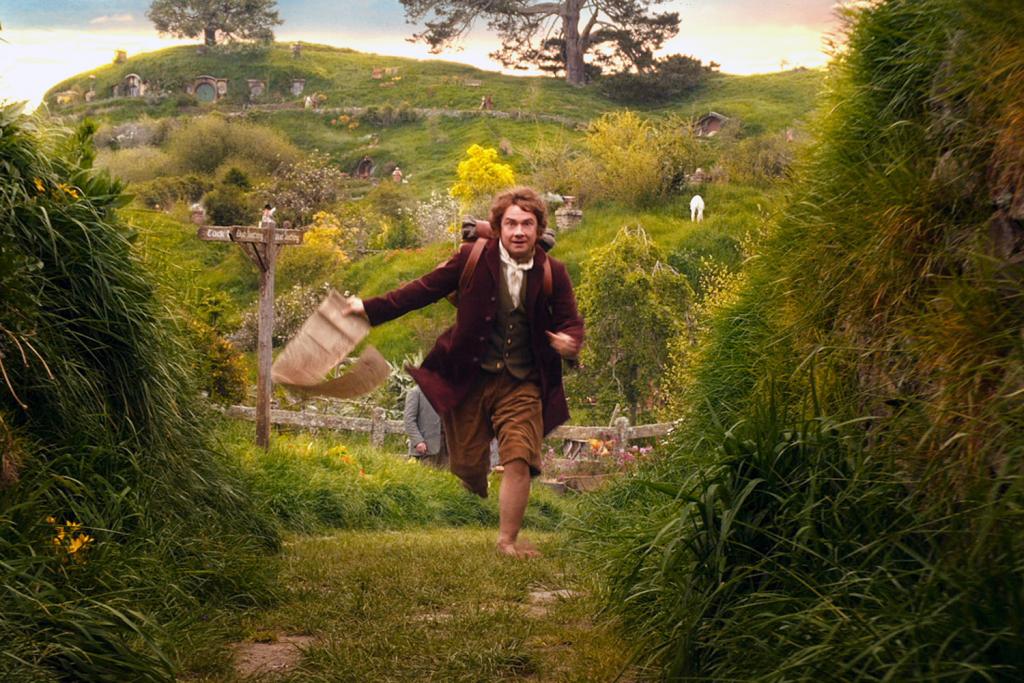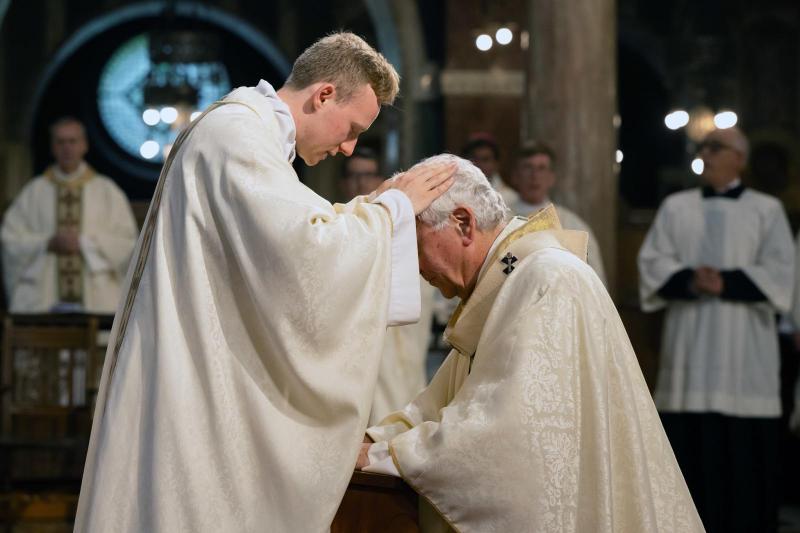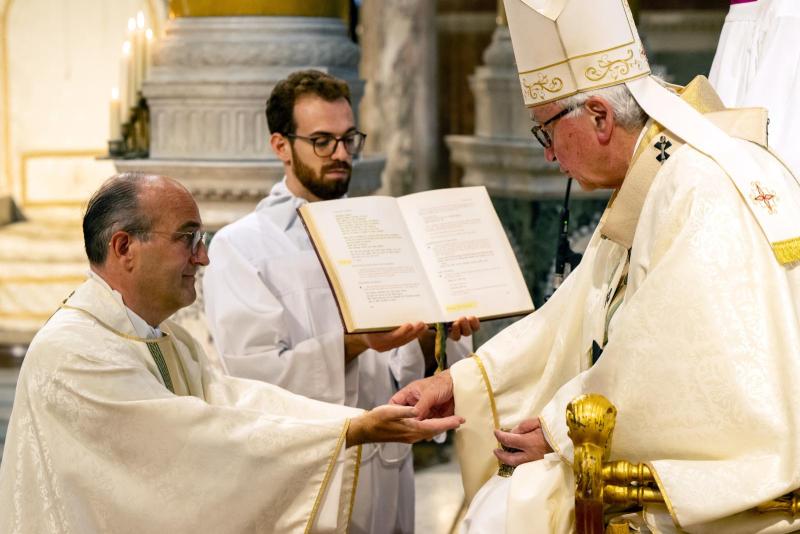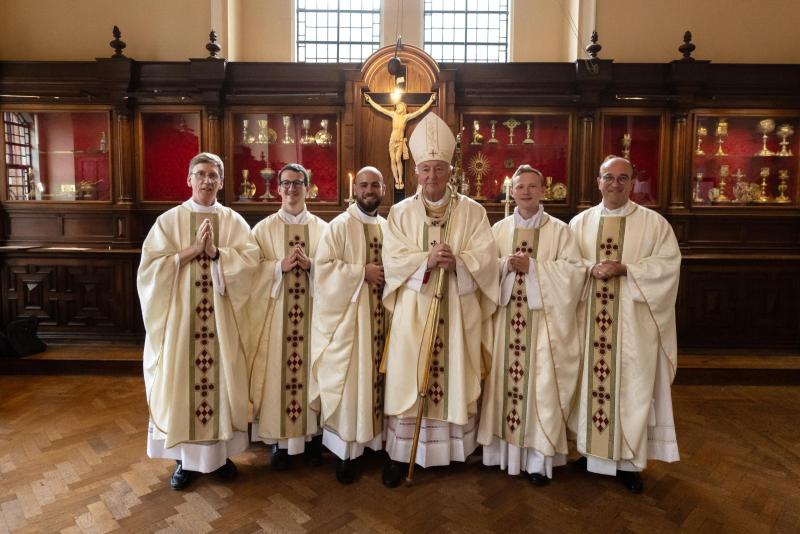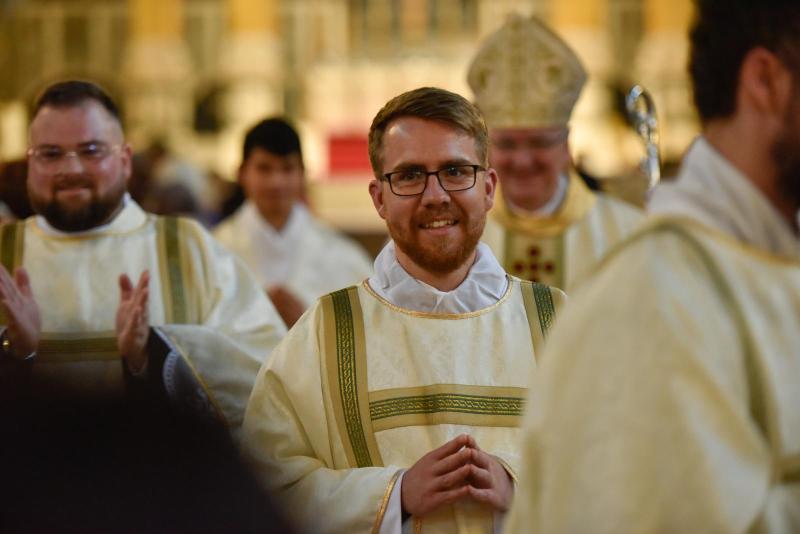I went to see the first instalment of the new "The Hobbit" film trilogy a couple of days ago. I am not one of those Lord of the Rings experts who can tell you all about the minutest minutiae of Middle Earth, but Tolkien's books have always been very dear to me as they were perhaps the first I ever read "for myself" as a teenager. They captivated me with their sense of life as a quest for truth and virtue at a time when I was beginning to wake up to life’s big questions.
It was only later in my life, after I had been received into the Church, that I came to know that Tolkien was himself a Catholic and that in his writing he strove, through the universal language of myth, to capture the beauty of holiness, the sacramentality of the world and the essential epic romance of our journey into God. And, as Bilbo Baggins and his fellow hobbits reveal, this ultimate union with the truth and light of God is most likely to be achieved, contrary to the logic of the world, by the smallest and humblest, with humour, adventure and the triumph of childlike joy. I wouldn’t have been able to articulate it in such words when I read Tolkien as a teenager but as I made my own first tentative steps into the wider world my instinct was definitely that the compass by which Tolkien navigated his epic world was one which would also serve me well.
Back to the film! I recommend Fr Robert Barron’s excellent podcast review of the film on his Word on Fire website – www.wordonfire.org Here below are a few of my own related thoughts, very much from the point of view of my role as vocations director for the diocese helping men and women on their quests for truth, for God, 30 years after I recognised in Tolkien a truth which could be a guide for my own quest.
The film/story begins in the cosy domestic comfort of Bilbo Baggin's Hobbit hole with all its security and warmth. Into this peace, in a kind of Annunciation moment, crashes Gandalf the wizard followed by the messy and raucous dwarves with their invitation for Bilbo to join their mission to regain the dwarves' ancient ancestral kingdom which has been overrun by a particularly nasty dragon. The young Hobbit (well, he's 50 which is young for a Hobbit!), seems a surprise choice to complete the heroic team. Indeed, Bilbo’s sense of his unworthiness, that he does not fulfil the essential requirements of a hero, holds him back – he struggles to see his true self. It is only with time that he and we shall discover the “definite service” and qualities which Bilbo will uniquely bring to this band of brothers.
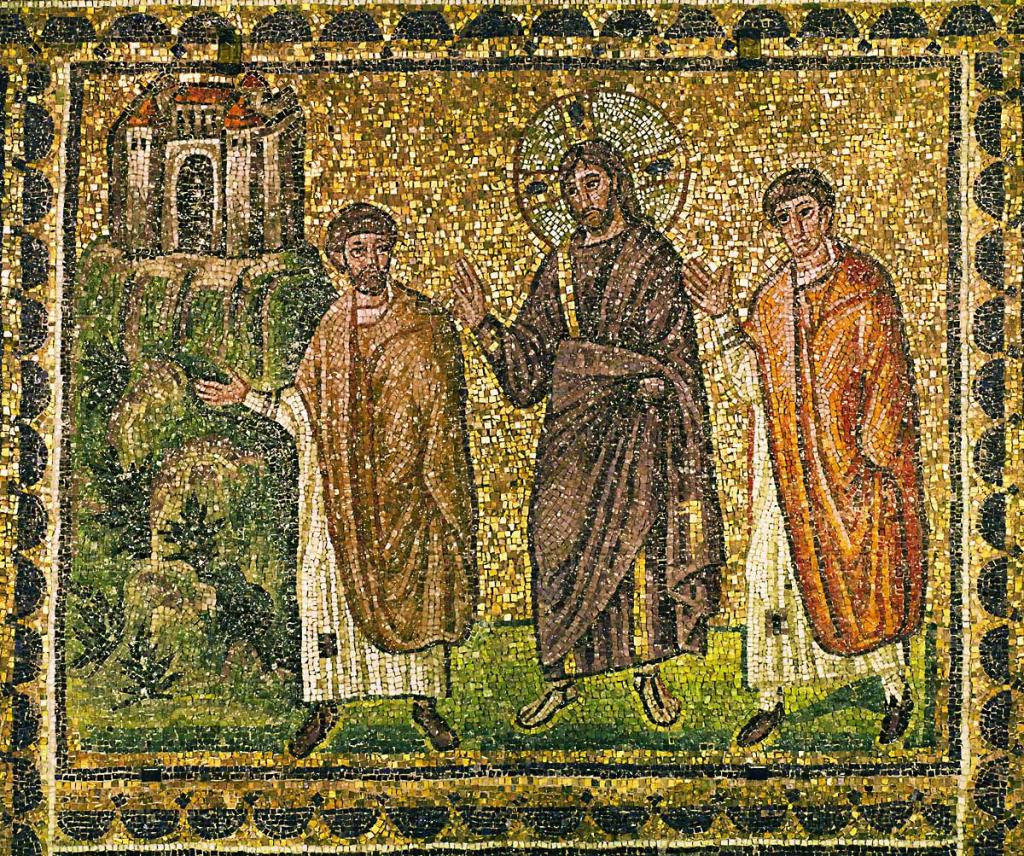 Most importantly for the theme of vocations discernment, the film/story explores some of the forces which prevent the different characters/us from joining/fulfilling the quest for truth and good. At one extreme is the greed of the dragon who, like the rich young man in the Gospels, cannot let go of the material treasure which ultimately is of no use or real benefit to him. He lazes amongst his shimmering, gleaming mountain of gold which seems ironically to dull his vital life-force. The opposite extreme is the temptation which Bilbo faces to stay in the comfort of his home and not risk the journey (like those who offer to follow Jesus but then hang back because of various domestic affairs which they want to sort out first). Bilbo's lace doilies and antique furniture, the cosy snugness of his Hobbit hole have dulled his instinct for adventure, for self-sacrifice. It is only gradually that he is able to overcome this and to really offer himself fully to the mission and to the risks/uncertainties it offers. However, with time and persistence, he is not only able to commit himself fully to the quest but he (and the others) also comes to understand just why he was chosen and what it is that he uniquely is able to contribute to the mission. It will be his small acts of kindness and love which will ultimately lead to the triumph of good over evil.
Most importantly for the theme of vocations discernment, the film/story explores some of the forces which prevent the different characters/us from joining/fulfilling the quest for truth and good. At one extreme is the greed of the dragon who, like the rich young man in the Gospels, cannot let go of the material treasure which ultimately is of no use or real benefit to him. He lazes amongst his shimmering, gleaming mountain of gold which seems ironically to dull his vital life-force. The opposite extreme is the temptation which Bilbo faces to stay in the comfort of his home and not risk the journey (like those who offer to follow Jesus but then hang back because of various domestic affairs which they want to sort out first). Bilbo's lace doilies and antique furniture, the cosy snugness of his Hobbit hole have dulled his instinct for adventure, for self-sacrifice. It is only gradually that he is able to overcome this and to really offer himself fully to the mission and to the risks/uncertainties it offers. However, with time and persistence, he is not only able to commit himself fully to the quest but he (and the others) also comes to understand just why he was chosen and what it is that he uniquely is able to contribute to the mission. It will be his small acts of kindness and love which will ultimately lead to the triumph of good over evil.
These are themes which I recognise so clearly from both my own journey and from the journeys of others who, with great trust and hunger, come to share with me their own search for God’s will. That feeling of unworthiness, that I’m somehow not the “right type” for the adventure, comparing oneself unfavourably with others, the way we can blunt our desire for the risk of a deeper discipleship, a deeper life commitment either by the cosy comfort of the familiar or the glittering temptations of fame and fortune, a mistrust of the small and humble in favour of the grand and impressive – all of these themes recur time and time again on the pages of the Gospels and on the pages of our lives today. Tolkien also, in the form of the orcs, goblins and other forces of darkness which he so vividly brings to life, clearly identifies the reality of evil which we will encounter on the journey.
Yet in the face of all these obstacles, these frailties and fault-lines in our humanity, Tolkien, in imitation of Christ himself, continues to invite and inspire us to set out on the “unexpected journey” of the spiritual quest for God and for our own deepest identity in God. This journey of faith and into faith is an ongoing venture, not simply a one-time choice – “The Road goes on and on” as Bilbo regularly remarks. It will lead to many other choices – between betrayal and loyalty, revenge and forgiveness, deceit and honesty, slavery and freedom, despair and hope... and in all this our seemingly insignificant daily choices will come to resound mightily in our own lives and in the lives of others.
As we enter this New Year, and continue our journey into the Year of Faith, may we have the resolve to listen for the knock at our door, with God’s invitation to step out onto the Road, to commit ourself to the quest he has in store for each one of us. If we do, our lives, like Bilbo Baggins’, will never be the same again!
